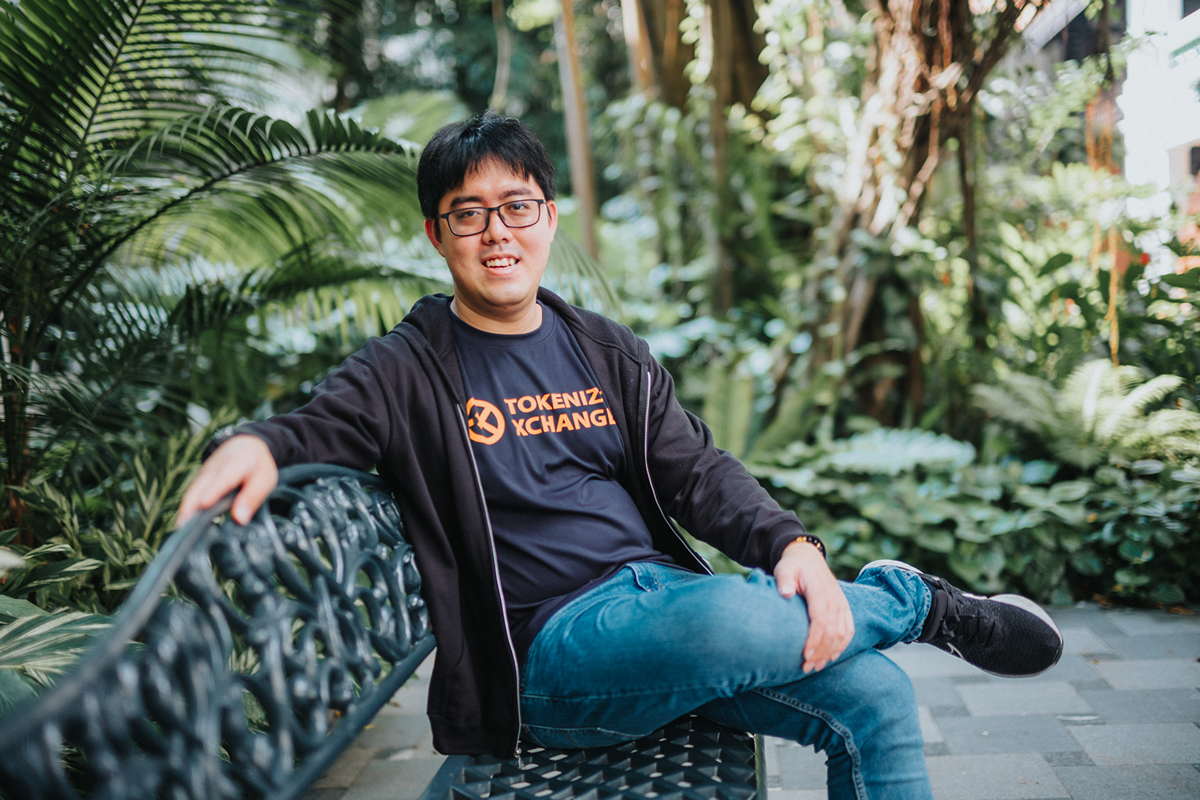The Tokenize Xchange cryptocurrency exchange in Singapore said it plans an acquisition expansion in Asia and will hire hundreds of staff, even as a crypto price slump has forced several exchanges to shed jobs and even shut down.
Tokenize is looking to raise as much as US$1 billion over the next 12 months to fund the expansion, said Hong Qi Yu, who founded the company in 2017 when the engineering graduate was 27 years old and had spent four years as a trader in financial markets.
Earlier this year, Tokenize raised US$11.5 million in a series A phase 1 funding from venture capital company Trive and individuals. According to crypto data analysis company CoinCarp, Tokenize plans a series B funding round next year to raise US$300 million. Tokenize added that it plans other Series B fund raising.
“We want to be a dominant player in Asia over the next three years,” Hong told Forkast in an interview. “Every jurisdiction in Asia when they talk about where to buy Bitcoin, they will talk about Tokenize. That’s our aspiration.”
Hong said the company has about 100 employees and is aiming for a total of 1,000 in three years while expanding to as many as 50 jurisdictions in Asia. He said the expansion will be driven by acquisitions to avoid lengthy licensing processes in different countries.
He did not share details on any specific acquisition targets or if the company is currently in talks with any other exchanges.
“We just have to be more aggressive to expand and move faster compared to the rest,” Hong said.
Rules
Tokenize Xchange is one of many operating under an “exemption” in Singapore while its application for a license to trade digital assets is assessed.
Tokenize has one license approved in Malaysia and hopes to receive licenses in Thailand and Indonesia soon, Hong said.
“When we acquire we definitely need the exchanges to be licensed. That’s our strict criteria,” Hong said.
Central banks and regulators are tightening oversight of cryptocurrency trading following several bankruptcies in the industry after the US$40 billion collapse of the Terra-LUNA stablecoin project this year.
The U.S., UK, Singapore, Thailand and India are introducing tougher regulations on digital assets to improve investor protection and curb money laundering.
The total capitalization of the cryptocurrency market has plunged almost 70% from a record high of US$2.9 trillion in November. Amid the slump, Nasdaq-listed Eqonex Ltd. shut its crypto exchange in Singapore, while exchanges like CoinFlex and Coinbase have laid off staff.
Still, like Tokenize, some exchanges see opportunity in the downturn. Singapore’s Coinhako has said it plans to expand in Asia, while the world’s biggest asset manager BlackRock Inc. is planning a spot Bitcoin trust, citing interest from institutional clients in the U.S.
NFTs & institutions
Hong said the company is also venturing into non-fungible tokens (NFTs) with the launch of its first NFT this week on its marketplace – Elemint – that opened in July.
NFT sales on the site reached about US$8 million in less than four days following the launch, Hong said.
Tokenize’s Mascot NFT, TBOT Fight Club (TBFC), one of the first NFT collections to be auctioned this week, is a collection of 555 collectables.
However, NFTs in general haven’t escaped the crypto slump.
According to NFT aggregation site CryptoSlam, the number of unique non-fungible token (NFT) buyers in August fell below 500,000 for the first time in a year, while total sales rose to US$730 million from July’s US$650 million led by an increase in Ethereum price in early August.
Tokenize has 300,000 users and with 80% retail traders, it will now look to expand services for institutions, such as banks and hedge funds, Hong said.
“We will continue aggressively to grow both audiences. We don’t take sides. But the priority right now for the next six months, I would say, is institutional focus,” Hong said.
This strategy aligns with the Monetary Authority of Singapore’s warnings to retail traders about the risk in cryptocurrency trading. The central bank has restricted crypto advertising in public areas and has consistently advised the public to steer clear of cryptocurrencies.
“I think retail is very price biased and tends to sell now due to panic,” Hong said, while “Institutional investors will invest in new products in the current market conditions.”
(Updates third paragraph after company clarified Series B funding rounds.)

